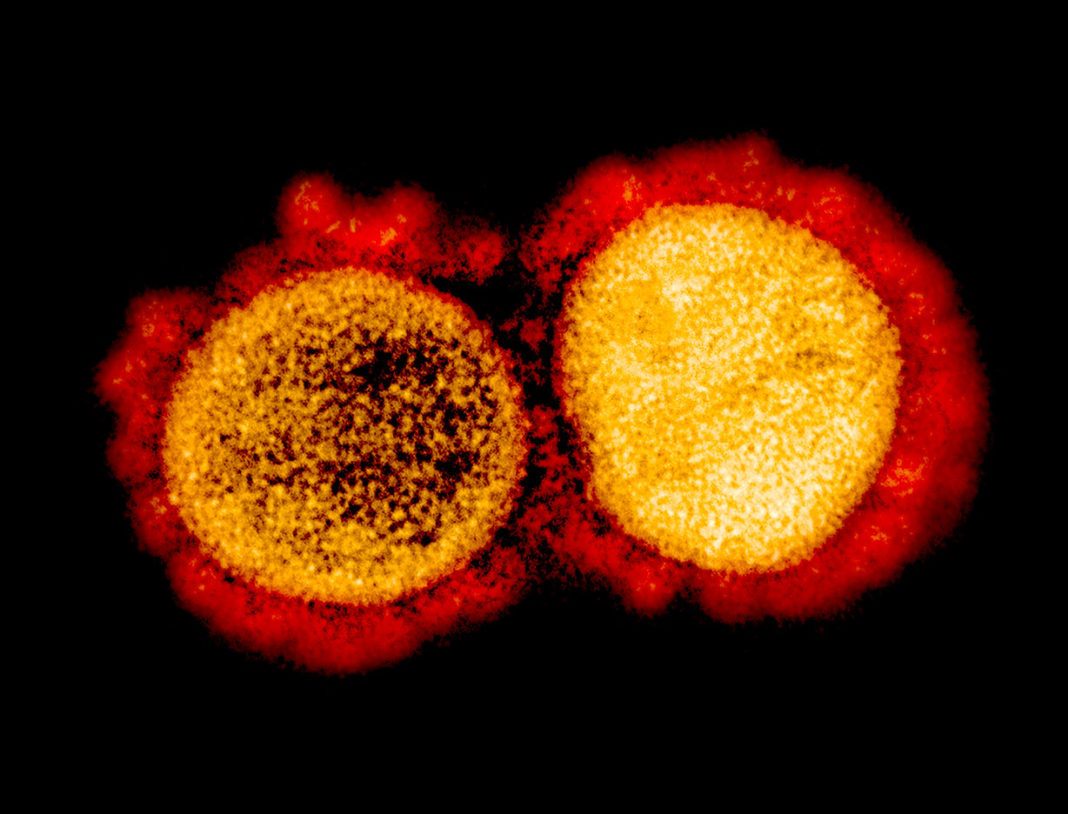Merck & Co. said today it will partner with the Institute for Systems Biology (ISB) to identify targets for medicines and vaccines against COVID-19 by investigating and defining the molecular mechanisms of the disease and specifically SARS-CoV-2 infection.
While the value of the collaboration was not disclosed in the announcement, Merck and ISB did say they will use a contract awarded to the pharma giant in 2016 by the Biomedical Advanced Research and Development Authority (BARDA). That contract (HHSO100201600031C) has a potential value of $78.5 million ($78,531,649), and was originally awarded August 29, 2016, to advance development of the vaccine candidate V920 “against Ebola virus using a recombinant vesicular stomatitis virus vector,” according to a contract summary published by GovTribe.
The contract has been extended from its scheduled end of May 31, 2020, through September 30, 2024.
In December, Merck announced FDA approval of the vaccine under the name ERVEBO® (Ebola Zaire Vaccine, Live), indicated for the prevention of disease caused by Zaire ebolavirus in individuals 18 years of age and older.
Merck said it had agreed to provide research funding and work with researchers at ISB to characterize targets for potential therapeutic intervention and vaccine development.
Through the collaboration with Merck, scientists from ISB, health workers from the Swedish Medical Center, and a consortium of research organizations and biomedical companies plan to analyze blood samples and nasal swabs from Swedish Medical Center patients with SARS-CoV-2 using samples from several time points that include initial presentation, acute illness and convalescence.
Evaluating infection impact
Merck and ISB said proteomic, metabolomic, transcriptomics and genetic techniques will be applied toward examining blood samples, with the aim of evaluating the impact of infection on different organs, and identifying potential biomarkers to predict the risk of severe disease.
In addition, samples will be analyzed to create a profile of the immune response, including quantitative changes in immune cells in patients following SARS CoV-2 infection and characterization of neutralizing antibodies in samples from convalescent patients. These insights can be used to inform vaccine design and antibody therapy, Merck and ISB reason.
The study will initially analyze samples from 200 patients with the potential to expand to 300, Merck and ISB said.
The announcement is Merck’s first regarding development of a potential COVID-19 therapeutic. Last month, Merck announced donations of 500,000 personal protective masks to New York City Emergency Management and 300,000 masks to New Jersey’s Office of Homeland Security and Preparedness, both toward urgent efforts to address COVID-19 emergency response.
“This collaboration with Merck provides critical support for the recently launched scientific trial being co-led by ISB and Swedish Medical Center, both part of the Providence St. Joseph Health network. We launched this trial with the urgent need to improve our understanding of COVID-19,” James R. Heath, PhD, president and professor at ISB, said in a statement. “By applying the full power of our systems biology capabilities, we hope to gain important insights into the molecular basis for the dramatically contrasting outcomes observed for patients infected with SARS-CoV-2.”
Heath and Jason D. Goldman, MD, at Swedish Medical Center, will be the study’s principal investigators.
Initial funding support for the study came from the Wilke Family Foundation, M.J. Murdock Charitable Trust, Swedish Foundation, Parker Institute for Cancer Immunotherapy, and Washington State Andy Hill CARE Fund. Other research collaborators on the study include Stanford University, Adaptive Biotechnologies, Bloodworks Northwest, Isoplexis, Metabolon, Nanostring, Olink, Providence Molecular Genomics Laboratory, Scisco Genetics and 10x Genomics.



